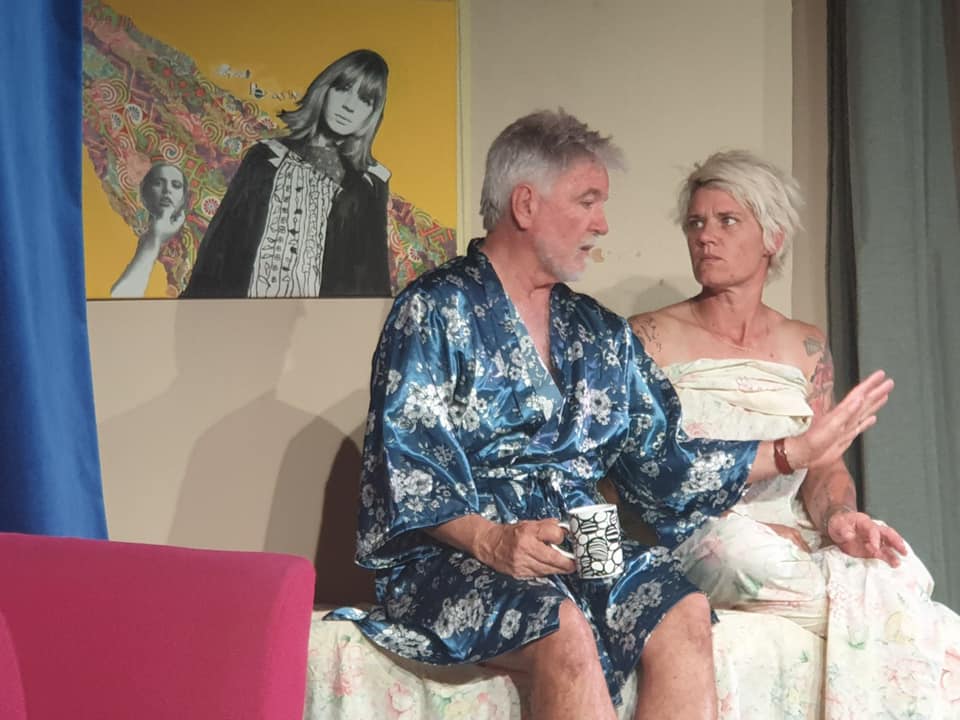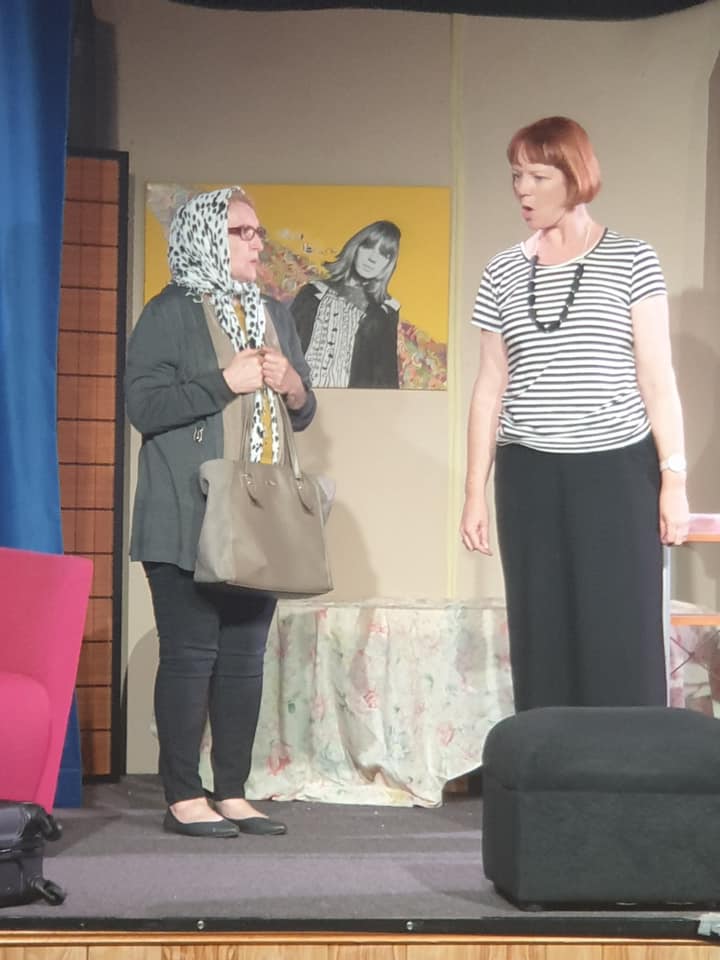
‘Do Not Disturb’ // Mercury Theatre Wynnum
‘Do Not Disturb’ was witty.
Nestled in the Bayside area, Mercury Theatre Wynnum is a charming hub of entertainment, and their most recent production ‘Do Not Disturb’, is a delightful conclusion to their 2019 season.
Published in 1983, ‘Do Not Disturb’ follows the story of Jason Spencer in the hours after he moves into his new apartment in search of solitude. However, thanks to the constant barrage of visits by his new neighbour, ex-wife, current wife and secretary, Jason receives anything but.
Director, Rosemary Thwaites, did an admirable job of tackling this fast-paced script. While at times the show lost momentum, and towards the end felt as if it had lost focus, overall the performance kept a strong pulse. The majority of the production sees Jason sparring with one of the women in his apartment until she leaves, and another woman barges in. Thwaites’ strength as a director is emphasised through the seamless transitions between these scenes, as well as avoiding the repetitive blocking that can come with scenes that continue to parallel one another. A break in this structure is the long-awaited inevitability of all the women finally meeting in Jason’s apartment (they all arrive intending to have dinner with him). Thwaites offers skilful direction in these scenes as each character has a separate, defined arc amid the chaos.
Terry Grant, as leading man Jason, was a solid anchor throughout the show. Grant, an actor with natural comedic timing, consistently had a twinkle in his eye and should be commended for successfully making Jason’s arrogant, opportunistically manipulative character likeable and, almost, endearing. Amongst the chaos the women brought, and the frequent absurdities of the script, Grant kept the show stable.
Stand out performances came from Anri De Jager as Darlene, Jason’s young new neighbour and Silvana Siliato as Rose, Jason’s first wife. Both actresses commanded a strong stage presence and enriched every scene they were in. De Jager had strong physicality in keeping with Darlene’s quirky youthfulness, and her sharp comic timing provided witty rapport with Grant. In the role of Rose, Siliato brought an almost ethereal quality to the character (highly fitting as Rose had recently found God) and was suitably earnest throughout. Siliato and Grant had very natural chemistry. Rose seemed to bring out a softer side to Jason and all scenes where the former couple started to reminisce were a joy to watch.
Toni Griffin was jaw-clenching snarky in her role as Jason’s current wife, Sonia, however, her performance could have benefited with more light and shade in conjunction with the volatile nature of her character. Similarly, Jennie Dean was suitably lovesick as Jason’s secretary, Mary. However, as Mary was not seen until long after the other women had already been established, perhaps Dean could have added more dimensions to Mary to make up for her lack of stage time compared to the other more established characters.
The set was natural and rough with half-painted walls and cardboard boxes akin to moving day. As the entire play takes place within Jason’s new apartment, Thwaites successfully made use of the theatrical space both on stage and off to enhance this singular setting. Upstage, a nook in between the back of the set and backstage was utilised for the cast to walk behind when waiting outside the neighbouring apartments expanding the theatrical space. Downstage, Jason frequently found himself calling out of his window, which was directed towards the audience. This was perfectly executed by Grant’s physicality and further immersed the audience.
Two unsung heroes of the production were set pieces that almost became characters unto themselves. The first being the curtain that enclosed Jason’s novel bed. May not sound too exciting – but the absurdity of watching Jason use a power-tool-esque remote to open and close the curtains so frequently and at such dramatic automation – those curtains deserved their own bow! The other was the constant telephone ring that appeared not to heed the titles plea of ‘Do Not Disturb’. At times, however, the sound effects of the telephone ring and doorbell were disproportionately loud compared to the actors, which was jarring but did not overall remove from the world of the play.
With the frequent references in the script to London, and the occasional use of era-specific phrases, some of the dialogue may have felt blunt to a modern audience. Thwaites could have made it more clear that the show was set in London, and in what era. The simplest and earliest way this could have been achieved was through the set. There was the use of a rotary dial phone and one painting on the wall connoting 70s hippy vibes but perhaps this could have been embellished with a similar style painting with the theme of something more British like the Queen (in her earlier years?) or a London landmark. A lot of the London specific terminology and references to locations seemed incongruous amongst the other dialogue and Australian accents. Preventing this ambiguity would have set up the show and what to expect right from the opening scene, and could have limited unnecessary distraction.
‘Do Not Disturb’ is a great choice for a community theatre production as all characters lend themselves to embellishment and easy comedy. Mercury Theatre Wynnum should be commended for providing a full night’s entertainment of fun, laughter and vibrant performances. Contrary to the title, disturbing the Bayside to see this show may not be a bad idea at all.
‘Do Not Disturb’ plays at Manly-Lota RSL Memorial Hall until Sunday, 16 November 2019. Tickets are available at Mercury Theatre Wynnum’s website.









